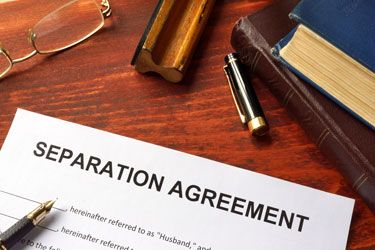
Colorado Statutory Law on Annulment
There is no specific “annulment” statute in Colorado. Rather, there are a handful of statutes that help to clarify when a person may be able to get an annulment. Most importantly, Colo. Rev. Stat. Section 14-10-111 governs the declaration of invalidity of the marriage. This statute is most commonly invoked when anyone seeks an annulment in Colorado. There are two additional statutes that clarify how a prohibited marriage (Colo. Rev. Stat. Section 14-10-110) is defined and thus makes the parties eligible for an annulment, and how incest (Colo. Rev. Stat. Section 18-6-301), which can also allow for an annulment.
To be clear, annulments can happen when there is some reason that the marriage was not legal in the first place. As such, an annulment says that the marriage was never legal anyway, and the annulment just solidifies that under the law.
Reasons for Getting an Annulment in Colorado
In Colorado, annulment is discussed as a declaration of the invalidity of marriage. The statutes state that annulment can happen in any of the following circumstances:
- A party lacked capacity to consent to the marriage due to mental incapacity or incapacitating substances like drugs or alcohol;
- A party lacked the physical capacity to consummate the marriage through sexual intercourse, and the other party did not know of this incapacity at the time of the marriage;
- A party was underage and did not have parental consent to get married;
- A party entered into the marriage based on an act of fraud committed by the other party;
- A party (or both parties) entered into the marriage under duress;
- A party (or both parties) entered into the marriage on a dare or as a joke; and/or
- Marriage is prohibited by law (which can happen for many reasons, such as: incest, or one or both of the parties was already married to someone else at the time of the marriage).
Either party in the marriage can seek a declaration of the invalidity of the marriage. In some cases, third parties can also seek an annulment or a declaration of invalidity, such as a legal spouse, a state official, or a child.
Learn More from a Colorado Family Law Attorney
If you have questions about annulment in Colorado, you should discuss your situation with a family law attorney in Colorado. An advocate at our firm can answer your questions today. Contact Bloch & Chapleau, LLC to learn more about the services we provide to residents of Colorado.





